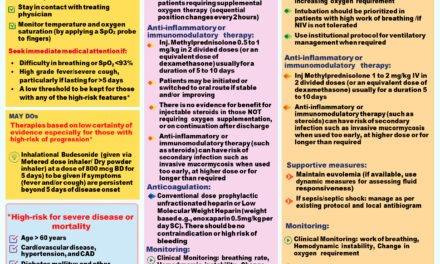A comprehensive study conducted by researchers at Georgetown University Medical Center has revealed that the use of antibiotics has no measurable impact on the severity or duration of coughs associated with lower respiratory tract infections, even in cases where a bacterial infection is present.
Published in the Journal of General Internal Medicine, the study challenges the widespread practice of prescribing antibiotics for coughs, particularly in primary or urgent care settings in the United States.
Dr. Dan Merenstein, the lead author of the study and a professor of family medicine at Georgetown University School of Medicine, highlights the misconception surrounding the need for antibiotics in treating lower respiratory tract infections. While upper respiratory tract infections often have established criteria for antibiotic use, lower respiratory tract infections, which include potentially more serious conditions such as pneumonia, frequently lead to antibiotic prescriptions without clear evidence of bacterial infection.
The study, which analyzed data from a large, prospective cohort of patients seeking treatment for lower respiratory tract infections, found that antibiotics provided no significant benefit in reducing the duration or severity of coughs compared to patients who did not receive antibiotics. This finding challenges the common practice of prescribing antibiotics for coughs, which may be driven by patient expectations rather than clinical necessity.
According to Dr. Mark H. Ebell, a study author and professor at the University of Georgia, physicians may overestimate the prevalence of bacterial infections in lower respiratory tract infections and their ability to distinguish between viral and bacterial causes. Despite this, a substantial proportion of patients are prescribed antibiotics, while antiviral medications are rarely used due to limited treatment options for respiratory viruses other than influenza and SARS-CoV-2.
The study employed advanced laboratory tests to confirm the presence of pathogens, revealing that antibiotic treatment did not hasten recovery for patients with confirmed bacterial infections. Moreover, overuse of antibiotics can lead to adverse effects such as dizziness, nausea, and diarrhea, as well as contribute to the growing threat of antimicrobial resistance.
Dr. Merenstein underscores the need for further research to identify appropriate treatments for coughs associated with lower respiratory tract infections. While cough is a common reason for outpatient and emergency department visits, optimal management strategies remain to be elucidated.
The study’s findings highlight the importance of evidence-based medicine in guiding clinical practice, particularly in the era of rising antimicrobial resistance and the need for judicious antibiotic use.
For more information, refer to the study published in the Journal of General Internal Medicine.











